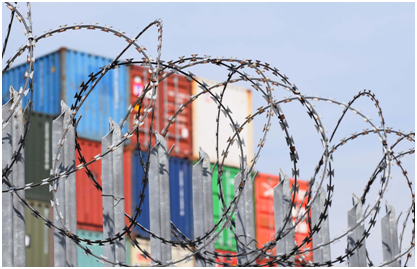
On 30 April, the U.K. introduced border
checks on fresh food products entering the country from the E.U. – over four years after the country left
the bloc through Brexit.
The new requirements mandate that E.U.
exporters of animal and plant products, including seafood chilled and
frozen meat, dairy products, berries, and some cut flowers, must present export health certifications
(EHCs) to U.K. authorities upon entry. The checks also include visual
inspections and temperature readings of goods, both of which the country has
deemed essential to prevent diseases and pests entering its borders.
With the program still in its infancy,
goods posing the highest biosecurity risk are being prioritized, though customs
officials will quickly ramp up check rates and high levels of compliance,
according to the U.K. government.
“It is essential that we introduce these global,
risk-based checks.
They are categorized based on the inherent risk the commodity poses to animal
health, food safety, biosecurity, and public health, alongside the risks
specific to the country of origin. Low-risk goods such as tinned salmon will
not need to have health certificates or routine border checks,” U.K. Cabinet
Office Minister Lucy Neville-Rolfe said. “We cannot continue with temporary
measures which leave the U.K. open to threats from diseases and could do
considerable damage to our livelihoods, our economy, and our farming industry.”
To cover the costs of its new controls
and systems, the U.K. has introduced a common user charge for
goods imported through the border inspection posts at the Port of Dover in the
country’s southeast and the Eurotunnel.
Some businesses in the country fear the
resulting increase in paperwork and cost-per-consignment rates imposed on E.U.
exporters will impact small retailers and wholesalers in the U.K. Consumers
have been warned to expect a reduced variety of delicatessen goods, less fresh
produce, and higher prices.
The checks represent the first time
since Brexit the U.K. has applied third-country status to E.U. businesses. For
their part, U.K. businesses have had to deal with their status as
third-country entities in the E.U. since 1 January 2021, when E.U. border
posts implemented strict inspection regimes to ensure food safety and disease control.
Since then, U.K. exporters have encountered port delays, non-tariff barriers,
and a plethora of paperwork and bureaucracy that have impeded their ability to get their goods to the bloc.
Many companies, including seafood companies, small
cheese makers, and brewers have either stopped exporting to the E.U. because
it is too expensive and difficult or have gone out of business altogether.
According to the Resolution Foundation, a London,
U.K.-based think tank, U.K. trade of overall goods had shrunk by the end
of 2023 “to levels not seen since 2015.” Exports
of goods have contracted by 13.2 percent and imports by 7.4 percent since 2019,
according to the foundation, which is a far larger dip than any other G7
country – a forum that comprises Canada, France, Germany, Italy,
Japan, and the U.S.